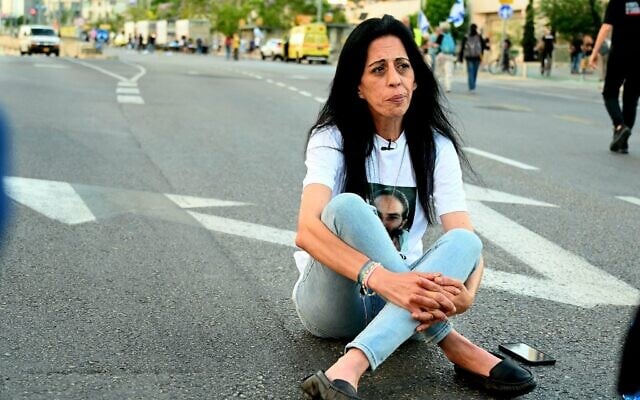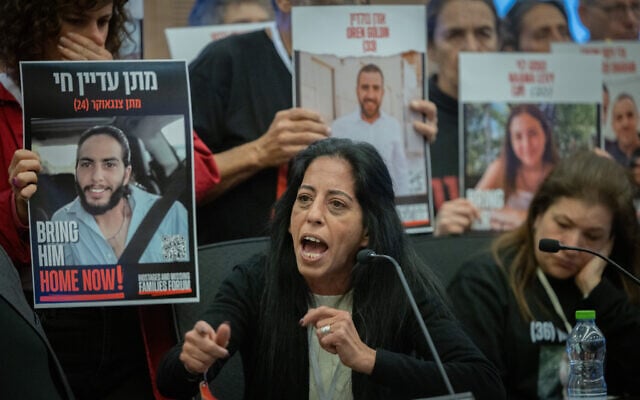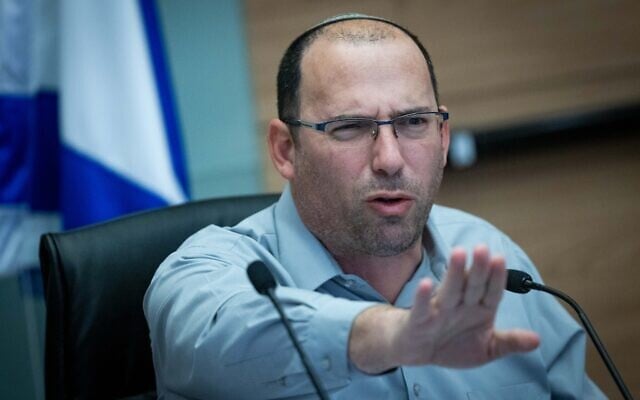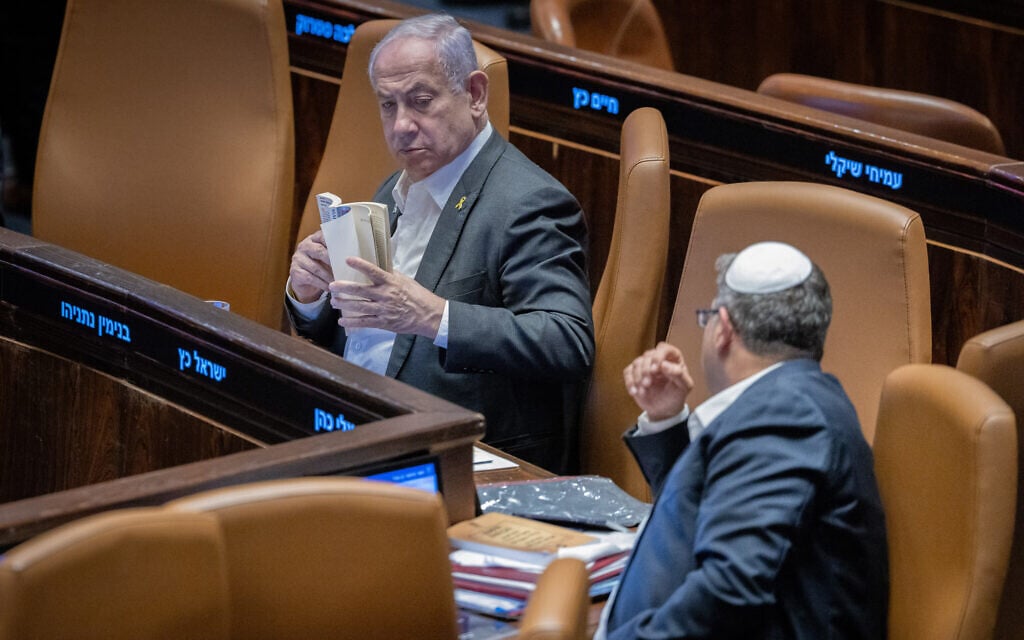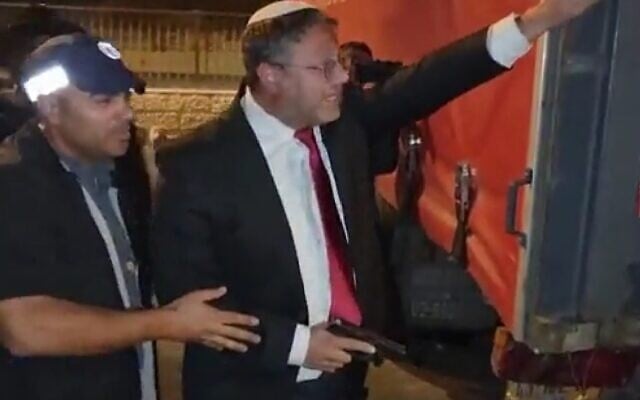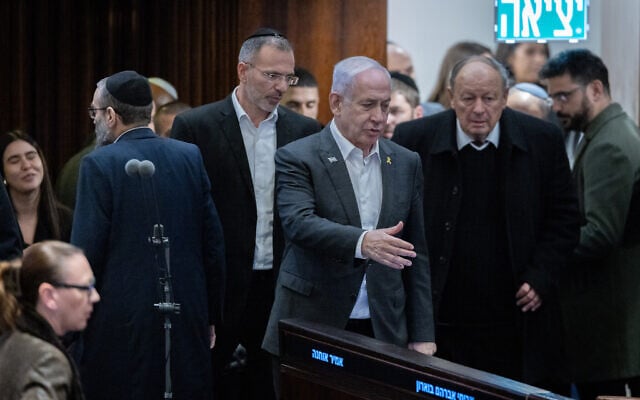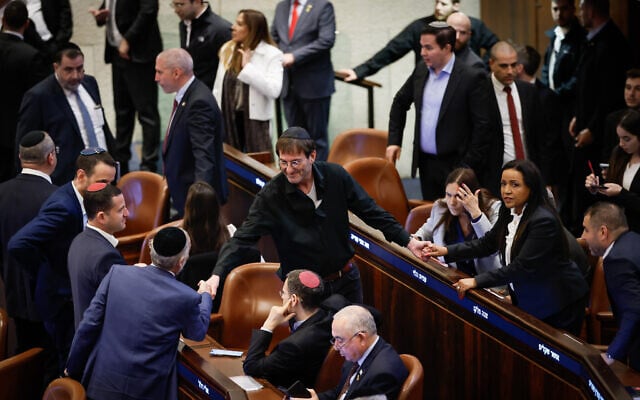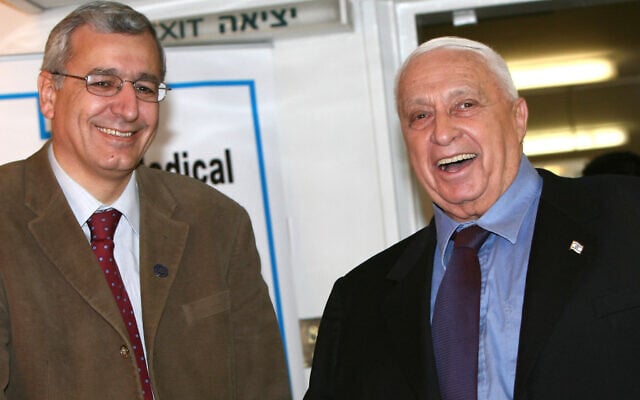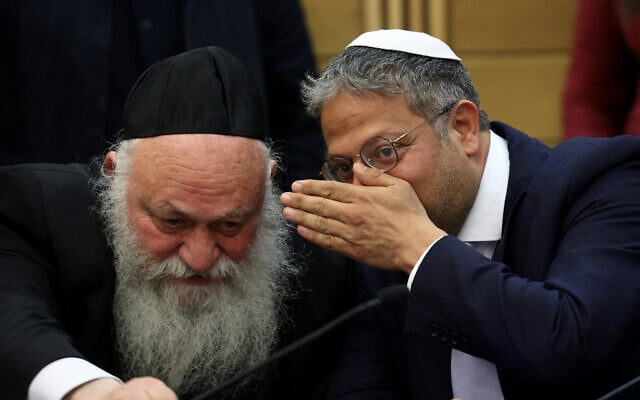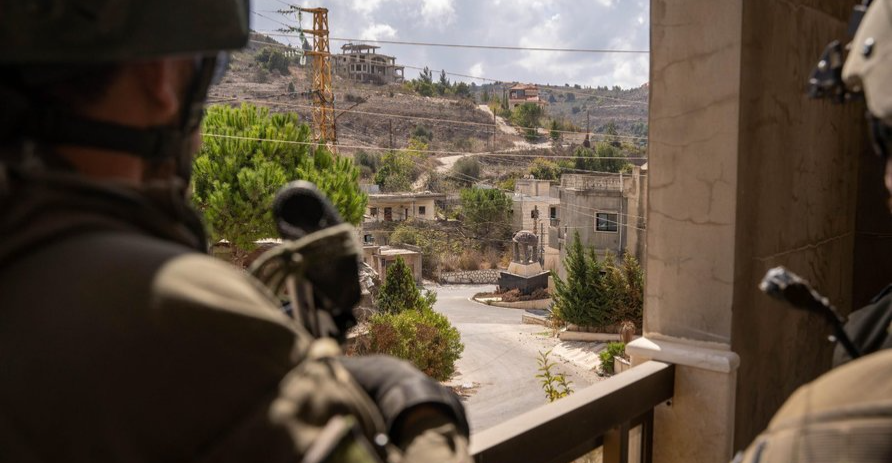Palestinian Authority pursuing West Bank terrorists to impress Trump, analysts say
Semi-autonomous body wishes to show US president-elect it is capable of governing a post-war Gaza; 11 people killed in last month’s clashes between PA forces and terror groups
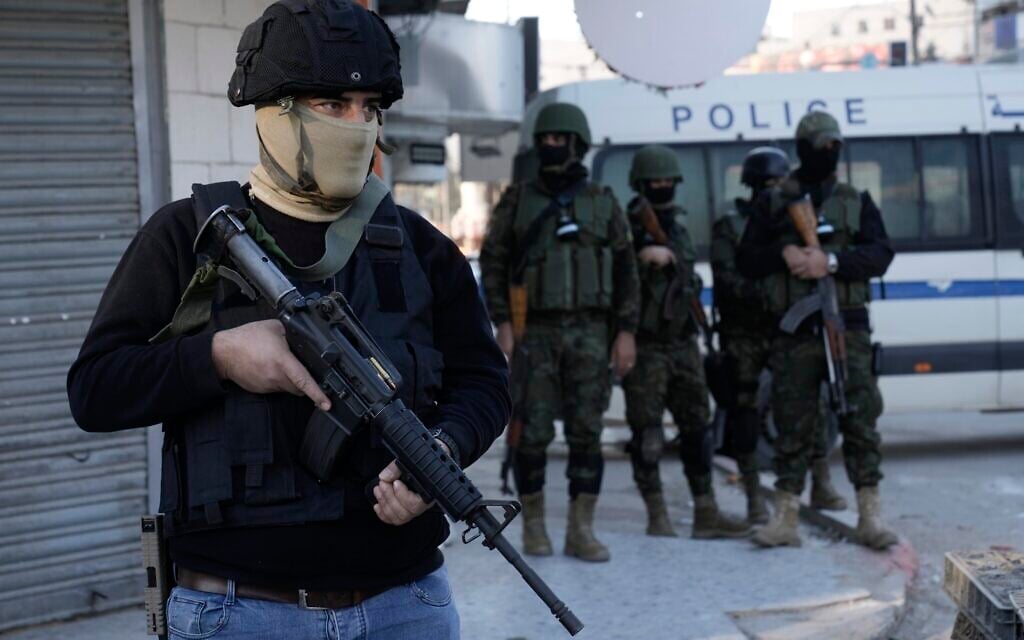
A Palestinian Authority security officer clutches his gun amid a major raid against members of terror groups in the Jenin refugee camp in the West Bank, December 16, 2024. (AP Photo/Majdi Mohammed)
The Palestinian Authority is determined to score a win against terrorists in the West Bank ahead of US-President elect Donald Trump’s inauguration, aiming to demonstrate its ability to control post-war Gaza, analysts told AFP.
The security forces of the PA, which exercises limited control over the West Bank, have been engaged in deadly clashes with gunmen since early December. The arrests of several terrorists triggered the skirmishes.
The PA forces are fighting members of the Jenin Battalion group, most of whom are affiliated with either Palestinian Islamic Jihad or Hamas, whose October 7, 2023 attack on Israel triggered war in the Gaza Strip.
The massacre saw terrorists invade Israel, killing some 1,200 people, mostly civilians, and kidnapping 251.
Hamas, which has been in power in Gaza since 2007 when it ousted the PA in a bloody coup, is the main political rival of Palestinian Authority President Mahmoud Abbas’s Fatah party that dominates the PA.
Eleven people — including PA security personnel, terrorists and civilians —have been killed in the violence in Jenin refugee camp, a stronghold of armed groups in the northern West Bank and a frequent target of Israeli military raids.
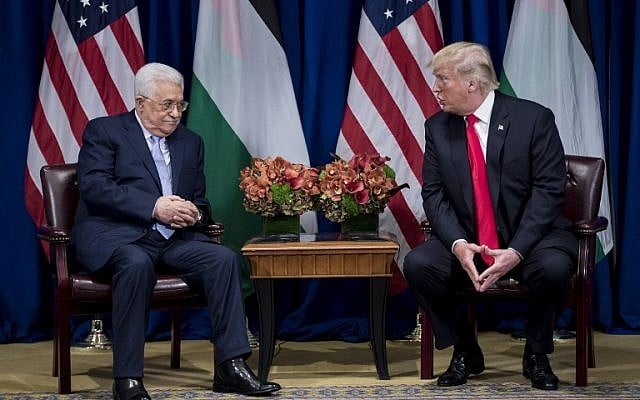
Palestinian Authority President Mahmoud Abbas listens while then-US President Donald Trump makes a statement for the press before a meeting at the Palace Hotel during the 72nd United Nations General Assembly on September 20, 2017, in New York. (AFP/Brendan Smialowski)
“What is happening in Jenin is a crucial test for the Palestinian Authority, which is trying to assert its control and impose security in the region,” political analyst Khalil Shahin said.
An official with the Ramallah-based PA, speaking on condition of anonymity to discuss the operation in Jenin, said that Abbas “categorically rejects any mediation… and insists these militants surrender themselves and their weapons.”
Anwar Rajab, a spokesman for the PA’s security forces, said, “There will be no tolerance for this rogue group that operates outside the law.”
The intra-Palestinian clashes erupted amid a major raid by PA forces on the Jenin camp, which came after the December 5 arrest of a Jenin Battalion commander on charges of possessing weapons and illicit funds.
Armed Palestinian factions in Jenin and elsewhere portray themselves as a more effective resistance to Israel than the PA, which coordinates security matters with Israel.
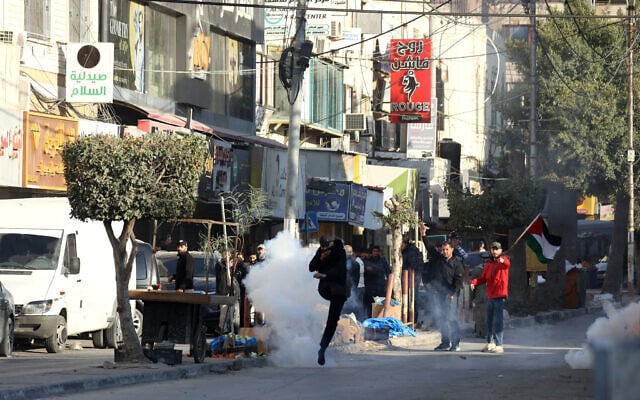
Palestinian Authority security forces gather at the site of a protest against clashes with terror groups in the northern West Bank city of Jenin on December 16, 2024. (Jaafar Ashtiyeh/AFP)
Analysts say that in Jenin, the PA is trying to prove it can control the violence and demonstrate that it could bring stability to Gaza once the war is over.
Shahin said the PA was trying to “weather the storm” of the Gaza war, Israeli offensives and regional upheavals before Trump takes office in January.
‘Illusions’
“The PA hopes that, after Trump sees its ability to control Jenin, he will support it in governing Gaza after the war, unlike President Joe Biden,” Shahin said.
Prime Minister Benjamin Netanyahu, however, has ruled out any role for the PA or Hamas in governing Gaza after the war ends.
During Trump’s first term, US relations with the PA rapidly deteriorated over what the Palestinians viewed as a series of moves to sideline them.
Trump broke with most of the world by moving the US embassy to Israel from Tel Aviv to Jerusalem. He also suspended aid to Palestinians and his “deal of the century” to solve the Israeli-Palestinian conflict would have seen Israel annex 30 percent of the West Bank.
Hani al-Masri, director of the Palestinian Center for Policy Research and Strategic Studies, said the timing of the Jenin raid appeared to strategically coincide with the lead-up to Trump’s return to the White House, as well as the possibility of reaching a ceasefire in Gaza after nearly 15 months of war.
In an analysis piece for his institute, Masri warned against the “illusions” of trying to appease Trump or believing he would take a different approach in his second term.
The PA “believes it will be acceptable to the new Trump (presidency) if it lowers” its demands or opposition, Masri said.
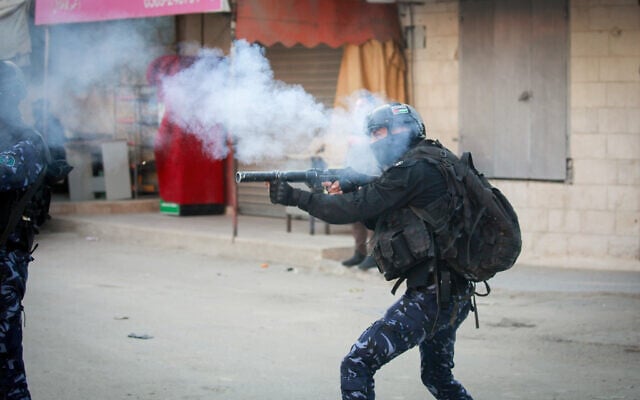
Palestinian Authority security officers launch smoke grenades during clashes with Palestinians in the West Bank city of Jenin, December 16, 2024. (Nasser Ishtayeh/ Flash90)
While Hamas and Islamic Jihad accuse the PA of effectively serving Israeli interests, many fear a more intense outbreak of intra-Palestinian violence, against the backdrop of the ongoing war in Gaza and a surge in Israeli military raids and settler attacks in the West Bank.
Videos have circulated showing alleged abuses by Palestinian security forces, further increasing tensions between the rival camps of the PA and Hamas.
Hamas has condemned “grave violations” by the PA’s forces, while Fatah has denounced those who “legitimize chaos and anarchy.”
The Palestinian Authority on Wednesday suspended Al Jazeera broadcasts across the Palestinian territories, accusing the Qatar-based channel of “interference” in Palestine’s internal affairs. The suspension order came after Al Jazeera covered clashes between Palestinian security forces and resistance fighters in Jenin in the West Bank.
Issued on: 01/01/2025 -
FRANCE24
By: NEWS WIRES

The Palestinian Authority on Wednesday ordered the suspension of broadcasts by the Qatar-based Al Jazeera across the Palestinian territories, accusing the network of airing "inciting content", official media reported.
"The specialised ministerial committee, comprising the ministries of culture, interior and communications, has decided to suspend broadcasts and freeze all activities of Al Jazeera satellite channel and its office in Palestine," the official Wafa news agency said.
"The decision also includes temporarily freezing the work of all journalists, employees, crews and affiliated channels until their legal status is rectified due to Al Jazeera's violations of the laws and regulations in force in Palestine," the report said.
"This decision comes in response to Al Jazeera's insistence on broadcasting inciting content and reports characterised by misinformation, incitement, sedition and interference in Palestinian internal affairs," it added.
An Al Jazeera employee contacted by AFP confirmed that the network's office in Ramallah had received a suspension order on Wednesday.
Tensions between the network and the Fatah movement of Palestinian president Mahmoud Abbas have risen in recent weeks due to the channel's coverage of clashes between Palestinian security forces and resistance fighters in Jenin.
The Ramallah-based Palestinian Authority's decision comes more than three months after Israeli forces raided the network's office in Ramallah.
(AFP)




